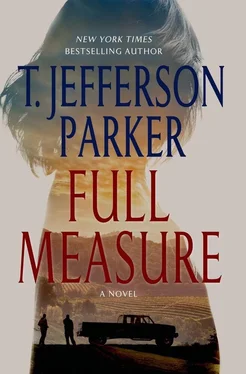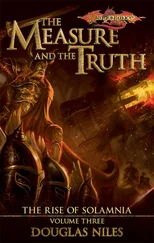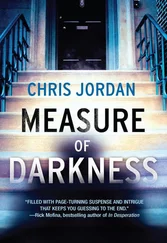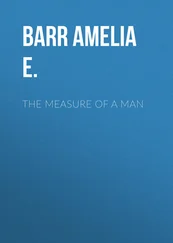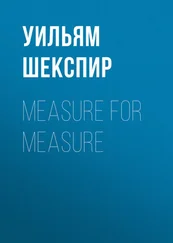While Oceanside Police and Fire processed John Bostik, Patrick got the Bostik family number in Crescent City from 411 and made the call. He felt like he was in a nightmare but knew that it was real and he wouldn’t have the blessing of waking up. He told Mrs. Bostik what had happened to John, and said he was very, very sorry but wanted her to hear it from somebody who knew and loved him. She was speechless. Mr. Bostik took the phone from her and Patrick explained again, then asked if they could stop by, very briefly, to pay their respects. Sixteen hours later the three men rolled into Crescent City in Patrick’s truck. It was four in the morning and raining hard and luckily they’d brought jackets for the cold.
The Bostik home was off of Kings Valley Road, midway between town and Pelican Bay Prison. They found the driveway and parked away from the house. Patrick, who had driven the first five hours and the last five, spilled out of the truck and tried to shake the blood down into his legs then climbed back in. He lay his head against the rest but his stitches stung and he couldn’t doze. He listened to the roar of the rain on the roof and looked through the fogging window at the darkness.
Sunrise came late over the redwoods and a small yellow house appeared. It was tucked back in the trees and smoke wobbled up from the chimney. In front of the house was a small square lawn with a concrete birdbath exactly in its center. It was raining lightly and the tops of the redwoods were intermittently lost in the shifting fog.
“Think they’re awake yet?” asked Messina.
“It’s almost eight hundred,” said Salimony. “They have an afternoon flight out, right, Pat?”
Patrick nodded, this information given him by Jake Bostik yesterday evening when Patrick called to make sure they were still welcome to come by. He saw a light come on in the house.
Jake Bostik was tall and slender, a corrections officer at Pelican Bay. Janet Bostik was petite and pleasant-faced though her eyes were puffy and red. They were much younger than Patrick had pictured them. Mrs. Bostik put mugs beside the coffeemaker and a stack of salad plates and two boxes of supermarket donuts on the kitchen counter. Jake set up TV trays in a living room with a picture window. While the coffeemaker gurgled and wheezed Patrick listened to the rain tapping overhead and watched it spill over the gutters into a brick planter dense with ivy.
He heard shuffling and turned to see a boy come from the hallway. His face was slack from sleep and his hair was peaked up on one side and down on the other and he looked very much like John Bostik. He was skinny and peach-fuzzed and had a blanket over his shoulders. Patrick guessed sixteen. Without a word or a look the boy went into the kitchen.
“Nine-Eleven was what got John going,” said Jake. “He wanted to go fight. He was ten years old. I was thirty-one and I think I’d have enlisted if I wasn’t married and a dad.”
“Me, too,” said Salimony. “I really wanted to do something. I wrote Bush a letter saying I’d keep an eye out for terrorists at school. And I did. Never saw any.”
“But later I had a bad feeling about the wars,” said Jake. “It seemed right at first to go after bin Laden. Then Iraqi Freedom, the way they marketed it like a car or something... it seemed not necessary. Honey, we talked about this?”
She nodded and looked out the window. “And way back then, neither of us thought both those wars would still be going on by the time John could enlist, which he did, at seventeen. I was against it but there was no stopping him. Seventeen — that’s a year older than Kirk is now. That’s Kirk in the kitchen. I didn’t think either war was worth John losing his life over. Or Kirk or any American boy. Not worth it. I’m just a nonpolitical mom. That’s what I thought about those wars. I still do.”
Kirk came into the living room holding a cup of coffee in one hand and the blanket snug around his shoulders with the other.
“I’m still going to join up,” said Kirk. “The second I’m seventeen.”
“Why?” asked Salimony, one leg bouncing.
“Because this place is dark, cold, rainy, and gets tsunamis. I’ve had enough.”
“I think that’s a good reason to join,” said Messina.
“Why don’t you go to college?” asked Patrick.
“D’s. I’ll use the GI Bill when I’m out and know what I want to do.”
Patrick wondered what John Bostik would be like if he’d gone to school rather than to war. Alive, for starters. Even young Kirk knew that a distant war had killed his brother, so what could Patrick say to dissuade him? Still he felt compelled to try. “There’s only one reason to go to war, Kirk — to defend your country. Make sure you got a good war, one that does that.”
“How will I know if it’s good or not?”
Patrick had to think about that a moment. “I think the good wars come to you.” The room went silent and Patrick felt six minds arcing away in six different directions, like bright tendrils of one firework. “I’d like to say that the thing I loved most about John was his sense of humor. The first time we almost died together it was close. Real close. They caught us out in the open in the brown zone, not far from Route Six One. Machine guns lit us up — must have been half a dozen of them dug in on a hillside. We hit the dirt and the bullets were thick and all we had for cover was this scrawny little fallen tree. And after about half a minute of this, Boss started laughing. Hard. And the bullets kept ripping past us and slapping into that tree and he said, ‘I’m sorry, Pat, but when I get this close to dying and I’m not dead, all I can do is laugh.’ And I got what he meant and the bullets were still coming at us and I started laughing too and I couldn’t stop. I just could not stop. Because it was absurd. Because we were supposed to be dead but we were flat behind a scrawny tree that was saving us. We finally returned fire. The air cover arrived and they laid down the rockets and killed every Talib on that hill. We lost two men in the ambush. Sisley and Ocampo. There were another maybe hundred times I should have died over there. At least. And every time death failed to get me, I laughed. John taught me to laugh right in its face.”
Salimony told the family about John’s easy kindness with village children, how he shared all the stuff in the care packages they sent, except for the peanut-butter-filled pretzels, which he hogged for himself and his best friends only. Luckily, we all three qualified as best friends, said Salimony. Messina told them about the time their son ran to the side of a platoon mate, Evans, who’d set off an IED hidden in the rocks — got the tourniquet on him like right then — and saved his life and his foot. Patrick told them how he and John would follow PFC Reichert out at night with SAW machine guns, to cover the crazy kid on his critter patrols. Reichert collected anything weird he could find, took pictures and made notes on them. He kept his treasures in jars and cans at the FOB — all sorts of lizards and snakes and bugs. He staged fights between the camel spiders, the Marines betting and cheering like it was UFC or something. “My brother, Ted, always had crawling things in cages when we were kids. Still does. So, when we covered Reichert on his night missions it was like we were covering Ted. And I thought it was an example of why we were in the war. How the war related to America and home.”
Patrick saw that Kirk was listening to him. The boy had a pugnacious expression but he was alert. “Then are you saying it was a good war or it wasn’t?”
“After going I know it wasn’t good and it wasn’t necessary. Before going I never thought about it. That’s why I’m telling you to think about things first. It might give you an advantage. Maybe your brother sacrificed so you won’t have to.”
Читать дальше
